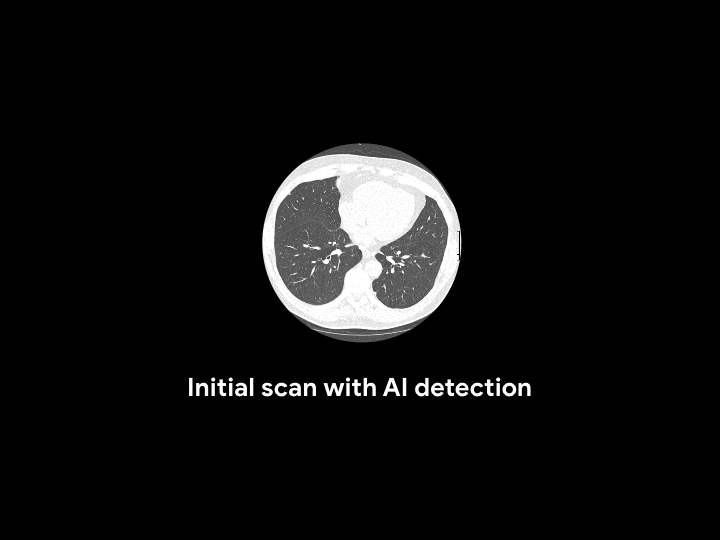 AI
AI
 AI
AI
 AI
AI
Google LLC has built an artificial intelligence model that can analyze CT scans of people’s chests to determine if they might have lung cancer.
The software, which the company detailed in a blog post today, is the fruit of a two-year development effort. Google taught the AI to detect tumors using a dataset of 42,000 chest scans taken from 15,000 patients as part of a National Institutes of Health study. After completing the training phase, the search giant’s researchers used roughly 3,800 CT images from Northwestern University to assess the AI’s accuracy.
The test saw Google pit the model against six radiologists with an average of eight years of experience. In one trial, during which the participants were only allowed to examine one CT image per patient, the AI identified 5.5% more cases of cancer than the experts with 11% fewer false positives. The model and the radiologists achieved nearly identical results when they were given access to multiple scans of a patient’s chest.
On top of showing it can keep up with trained medical professionals, the AI proved to be capable of identifying lung nodules, small masses of tissue that are benign in most cases but can sometimes become cancerous. They’re often difficult to detect because they appear as faint white shadows in CT images.
According to Google, its AI can not only spot nodules but also compare scans taken over a period of time to determine if the growths are showing signs of malignancy. When analyzing CT images taken two years after an initial screening, the model found cancer 9.5% more often than radiologists.
Google has published an academic paper detailing the project in the latest issue of Nature Medicine. Further down the road, the company plans to make the AI accessible through Cloud Healthcare API, a collection of services and features in its public cloud aimed at the healthcare sector.
“Despite the value of lung cancer screenings, only 2-4% of eligible patients in the U.S. are screened today,” wrote Google researcher Shravya Shetty, the technical lead on the project. “This work demonstrates the potential for AI to increase both accuracy and consistency, which could help accelerate adoption of lung cancer screening worldwide.”
THANK YOU